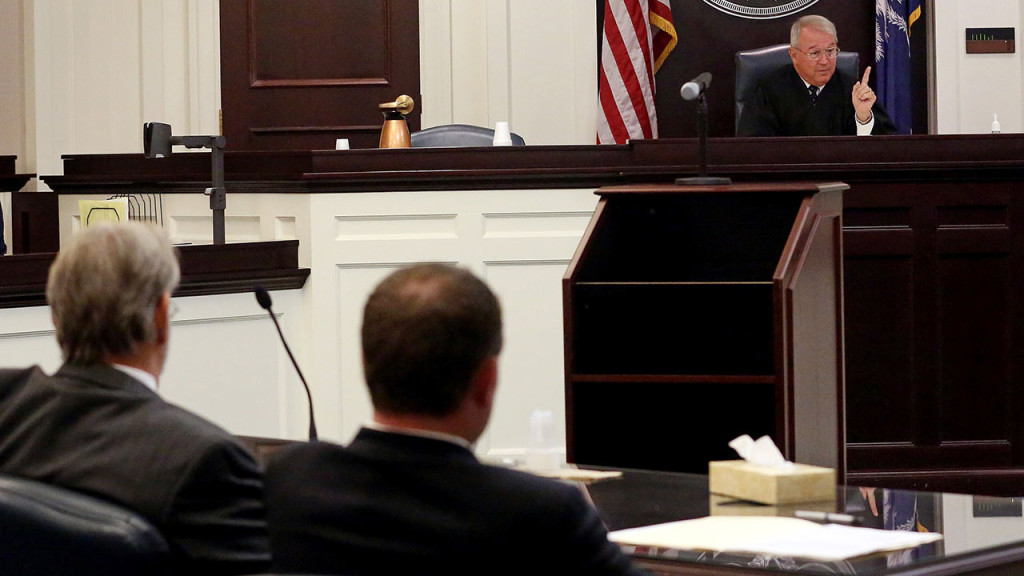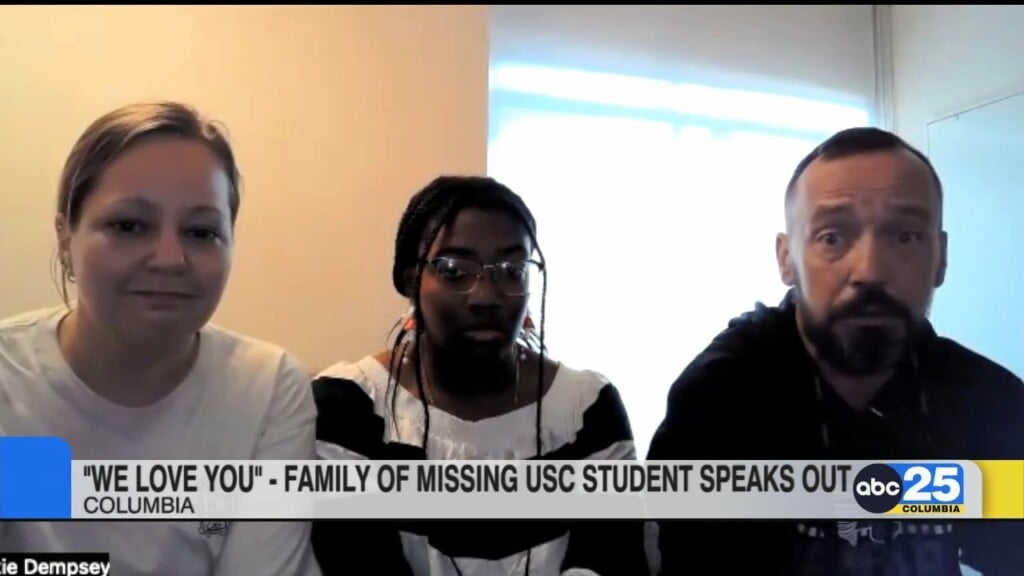Judge signals some materials will be released in Emanuel AME shooting case, but not yet

[gtxvideo vid=”KxdJfYpm” playlist=”” pid=”rkijshg2″ thumb=”http://player.gtxcel.com/thumbs/KxdJfYpm.jpg” vtitle=”Roof 911 Call”]
CHARLESTON, S.C. (WCIV) — Emergency calls, crime scene photos, a taped confession, and other items being held by a gag order in the Dylann Roof murder case are a step closer to being released after a nearly hour-long hearing Wednesday morning in downtown Charleston. Judge J.C. Nicholson heard more arguments on Wednesday on whether to release 911 calls and other documents in the shooting deaths of nine black parishioners at Emanuel AME church — but did not render a decision. Instead, Nicholson made tentative plans to invite in attorneys from all sides of the case to review the evidence being requested by dozens of Freedom of Information requests filed by media outlets around the world. For attorneys representing a group of media agencies, including ABC News 4, the Post and Courier, and the Associated Press, there was some signs of progress as Nicholson agreed that some of the materials would be released. Family members who filled most of the seats in the courtroom also heard from Roof’s public defenders, who said now that the state has decided to seek the death penalty, Roof is prepared to plead guilty in exchange for a sentence of life without parole. Nicholson expressed concerns early on that the publicity surrounding the case could jeopardize Roof’s right to a fair trial as well as the victims’ rights to protection. During the hearing, parties discussed at length releasing crime scene photos on a case by case basis and releasing a transcript of the 911 calls but not the actual audio. Eduardo Curry, the attorney representing members of the AME Church clergy, said the gag order had given victims time to heal, describing a scab on the wound of the community. He asked the judge to bar the media from “picking at it.” As attorney Jay Bender defended the media’s right to access of the evidence, Nicholson challenged him on his argument, directing him to keep his argument focused on the current case and the existing evidence. “What interest does the news media have in seeing the pictures?” Nicholson asked. “I’m not concerned with the other records. You’ll have that.” The exchange led to a compromise between the parties, giving attorneys access to the materials — specifically what are described as gruesome crime scene photos — on a case-by-case basis to seek a lift of the gag order. The sides even agreed that transcripts of the 911 calls could be released, noting that the victims can be heard on the 911 calls after the shooting. Attorney Andy Savage said the release of the transcripts would “remove the emotion” of the calls, which was revealed in court recorded the moments of at least one victim’s death. Victims’ attorneys said they are most concerned with evidence being released that re-traumatizes their clients but they are willing to compromise with media outlets. Judge Nicholson voiced concerns that non-mainstream news outlets not bound by journalistic standards would release unfiltered evidence. Federal prosecutors asked for the full gag order to stay in place in accordance with the Victims’ Rights Act. Federal authorities said they are sharing their evidence with state investigators and are worried evidence that should be protected by federal FOIA exemption law would be released by state agencies. Various news organizations, including The Associated Press and ABC News 4, challenged Judge J.C. Nicholson’s order preventing attorneys from discussing the case and preventing the release of emergency calls, witness statements, coroner reports and other documents stemming from the June 17 shootings at Emanuel AME Church. Attorney Taylor Smith, representing the AP and other media organizations, wrote in a motion filed earlier that “while we have great sympathy to those families who have lost loved ones, under South Carolina law these persons have no privacy rights that would outweigh the public interest in access to records which reveal the performance of government.” He also argued that the judge’s order violates the finding of the General Assembly that “public business should be conducted in an open and public manner” and people should be given access to public records “unless a narrowly construed exemption applies.” But Gedney Howe III, representing the estate of Clementa Pinckney, the state senator who was one of the shooting victims, said in his own motion the court should block release of documents including “videos, photographs or tape recordings of the victims.” He noted that there is “no identifiable public purpose” in the release of such material and that the South Carolina Victims Bill of Rights requires that victims be treated with fairness, respect and dignity. Roof also faces dozens of federal charges including hate crimes and obstruction of the practice of religion. William Nettles, the United States attorney for South Carolina, wrote in an amicus brief that Nicholson should keep the order in place. Nettles wrote that releasing documents and recordings “would violate victims’ rights, compromise victims’ dignity and invade victims’ privacy. Disclosure may well jeopardize the rights to a fair trial held by both the defendant and the public.” Jury selection in the federal case has been set for Nov. 3. Roof’s trial on the state charges has been tentatively set for July 16, 2016. Photo courtesy of WCIV

